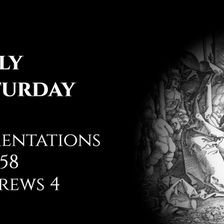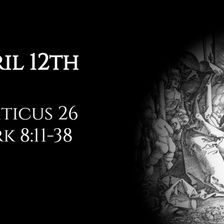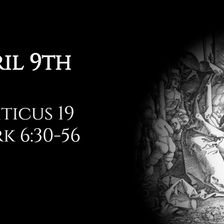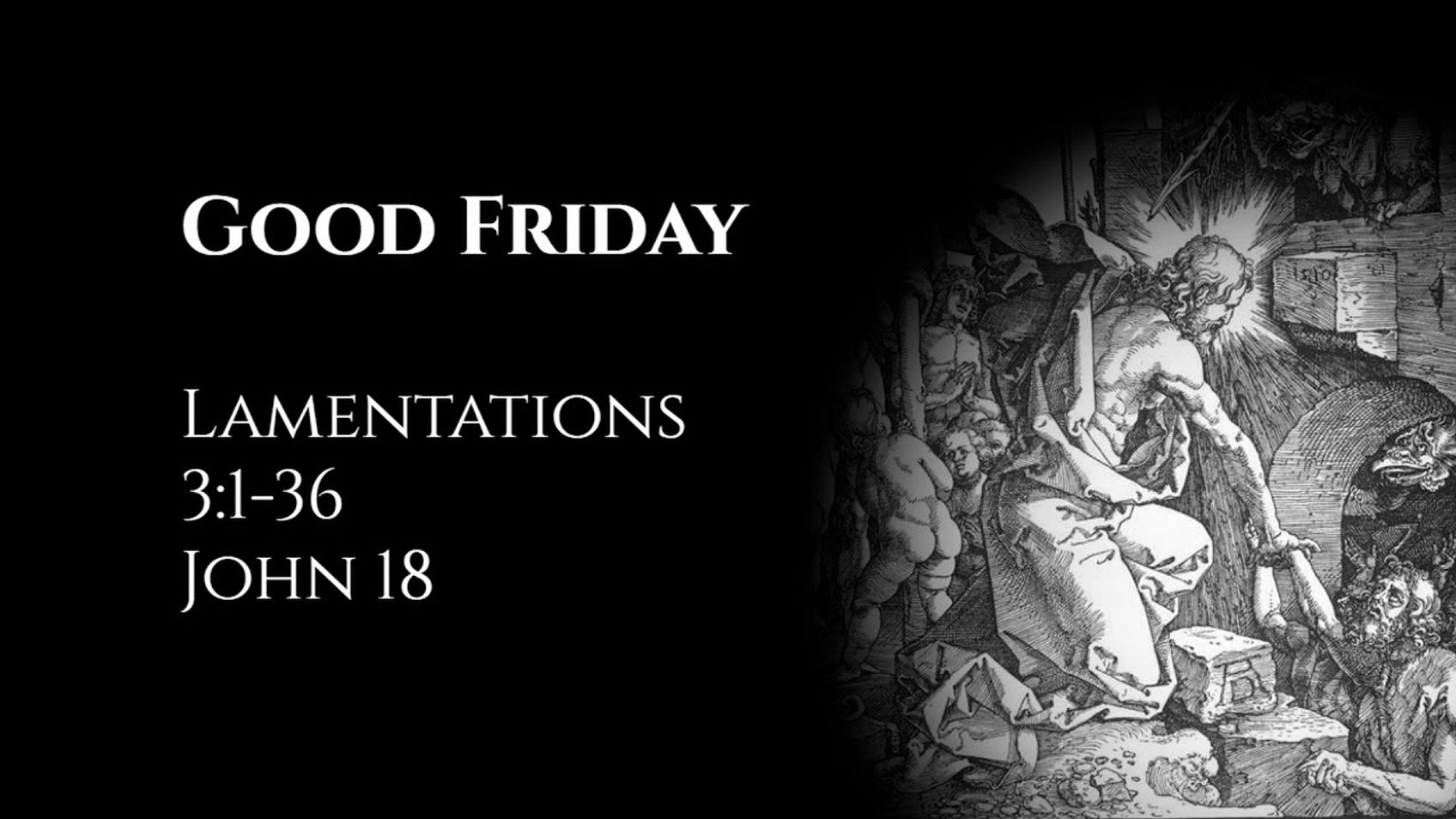Good Friday: Lamentations 3:1-36 & John 18

The prophet laments in the city's distress. Jesus' capture and trials.
Some passages referenced:
Lamentations 2:11-19 (similar expressions and voice to chapter 3); Lamentations 2:11 (similarities to Lamentations 3:48-51); Jeremiah 11:19 (Jeremiah led as a lamb to the slaughter); Jeremiah 20 (the word of the Lord lying heavy on Jeremiah); Lamentations 1:1 (the city of Jerusalem sitting alone); Jeremiah 8:13 (alluded to in Jesus’ judgment on the fig tree); Jeremiah 11:18-20 (Jeremiah like Christ); Jeremiah 18:16, Lamentations 3:19, 2:15 (verses alluded to in the crucifixion account of Matthew);
2 Samuel 15:23 (David crossing the Brook Kidron when fleeing from Absalom); John 13:37 (Peter’s overconfidence about his ability to lay down his life for Christ); John 21:9 (Peter restored by a fire of coals).
Reflections upon the readings from the ACNA Book of Common Prayer (http://bcp2019.anglicanchurch.net/).
If you have enjoyed my output, please tell your friends. If you are interested in supporting my videos and podcasts and my research more generally, please consider supporting my work on Patreon (https://www.patreon.com/zugzwanged), using my PayPal account (https://bit.ly/2RLaUcB), or by buying books for my research on Amazon (https://www.amazon.co.uk/hz/wishlist/ls/36WVSWCK4X33O?ref_=wl_share).
The audio of all of my videos is available on my Soundcloud account: https://soundcloud.com/alastairadversaria. You can also listen to the audio of these episodes on iTunes: https://itunes.apple.com/gb/podcast/alastairs-adversaria/id1416351035?mt=2.
More From Alastair Roberts






More on OpenTheo















